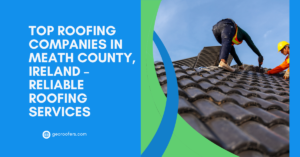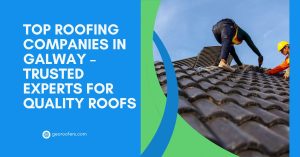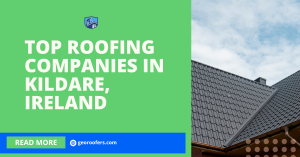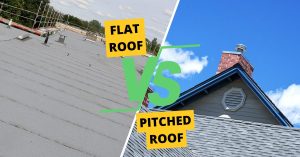Why Commercial Roof Maintenance is Essential for Your Business
Maintaining your commercial roof is critical to preserving the integrity of your building and ensuring the safety of everyone inside. Regular maintenance helps prevent costly repairs, extend the lifespan of your roof, and protect your investment. This article provides valuable commercial roof maintenance tips, offering insights on how to properly maintain your commercial roof, identify potential issues, and ensure your building remains in top condition.
Why is Commercial Roof Maintenance Important?
Commercial roof maintenance is crucial for several reasons. Firstly, a well-maintained roof can prevent water damage, which can lead to structural damage and costly repairs. Regular maintenance also helps identify potential roofing issues early, allowing for timely repairs and avoiding significant damage. Moreover, maintaining your commercial roof ensures the safety and comfort of your building occupants, which is particularly important for business owners.
Roof maintenance also contributes to the longevity of your roofing system. By addressing minor issues promptly, you can extend the service life of your roof and avoid the need for a premature replacement. This not only saves money but also reduces the environmental impact associated with roofing material disposal.
How Often Should You Inspect Your Commercial Roof?
Regular roof inspections are essential to maintaining your commercial roof. It is recommended to inspect your roof at least twice a year, ideally in the spring and fall. These inspections help identify any damage caused by extreme weather conditions, such as high winds or severe storms.
During a roof inspection, check for signs of damage such as missing shingles, ponding water, and deteriorating roofing material. If you notice any issues, it’s important to address them promptly to prevent further damage. Additionally, consider scheduling inspections after significant weather events to ensure your roof remains in good condition.
What are the Common Signs of Roof Damage?
Identifying the signs of roof damage early can help prevent costly repairs and extend the lifespan of your roof. Common signs of damage include leaks, ponding water, and missing or damaged shingles. Water stains on ceilings or walls can also indicate roof leaks.
Other signs to look for include deteriorating roofing material, such as cracked or curling shingles, and standing water on flat roofs. If you notice any of these issues, it’s important to contact a professional roofing contractor to assess the damage and recommend the necessary repairs.
How to Develop a Roof Maintenance Program
Developing a roof maintenance program is essential for ensuring the longevity and performance of your commercial roof. A comprehensive program should include regular inspections, routine maintenance, and timely repairs. Start by scheduling regular roof inspections at least twice a year and after significant weather events.
Your maintenance plan should also include routine cleaning of gutters and drainage systems to prevent water buildup. Additionally, address any minor issues promptly to avoid more extensive damage. By implementing a proactive maintenance plan, you can ensure your roof remains in good condition and avoid costly repairs.
The Role of a Professional Roofing Contractor
Hiring a professional roofing contractor is crucial for maintaining your commercial roof. Roofing contractors have the expertise and equipment needed to perform thorough inspections, identify potential issues, and recommend the necessary repairs. They can also provide valuable advice on how to properly maintain your commercial roof.
When choosing a roofing contractor, look for one with experience in commercial roofing and a good reputation. Check to see if they are licensed and insured, and ask for references from previous clients. A professional roofing contractor can help you develop a comprehensive maintenance plan and ensure your roof remains in top condition.
How to Handle Roof Leaks
Roof leaks can cause significant damage to your commercial building if not addressed promptly. If you notice a leak, it’s important to take immediate action to prevent further damage. Start by locating the source of the leak and contain the water to minimize damage.
Once you’ve identified the source, contact a professional roofing contractor to assess the damage and recommend the necessary repairs. In some cases, temporary repairs may be needed to prevent further water damage until a permanent solution can be implemented. Regular inspections and maintenance can help prevent leaks and ensure your roof remains watertight.
Best Practices for Flat Roof Maintenance
Flat roofs require regular maintenance to prevent water damage and extend their lifespan. One of the most important maintenance tasks is ensuring proper drainage to prevent ponding water. Regularly inspect and clean gutters, drains, and downspouts to ensure water flows off the roof efficiently.
Additionally, check for signs of damage such as cracks, blisters, or punctures in the roof membrane. Address any issues promptly to prevent water infiltration and further damage. Applying a reflective coating can also help protect the roof from UV damage and reduce energy costs by reflecting sunlight.

The Importance of Roof Membrane and Insulation
The roof membrane and insulation play a critical role in protecting your commercial building and maintaining energy efficiency. The roof membrane acts as a barrier against water infiltration, while insulation helps regulate the building’s temperature.
Regularly inspect the roof membrane for signs of damage such as cracks or punctures, and repair any issues promptly. Ensure the insulation is in good condition and has not been compromised by water infiltration or other damage. Proper maintenance of the roof membrane and insulation can help extend the lifespan of your roof and improve the overall energy efficiency of your building.
Managing Roof-Mounted Equipment
Roof-mounted equipment, such as HVAC units and solar panels, can create additional maintenance challenges. It’s important to regularly inspect and maintain this equipment to prevent damage to the roof and ensure its proper functioning.
Ensure that equipment is securely mounted and does not cause any damage to the roof membrane. Regularly inspect the area around the equipment for signs of damage or wear, and address any issues promptly. Additionally, ensure that any work performed on roof-mounted equipment does not damage the roof or compromise its integrity.
When to Contact Us for Professional Help
Maintaining your commercial roof requires regular inspections, routine maintenance, and timely repairs. However, there are times when professional help is needed to address more complex issues. If you notice significant damage, persistent leaks, or other serious roofing issues, it’s important to contact us for professional assistance.
Our team of experienced roofing professionals can provide thorough inspections, expert repairs, and valuable advice on maintaining your commercial roof. Contact us today to schedule an inspection and ensure your roof remains in top condition.
Bullet Point Summary
- Why Commercial Roof Maintenance is Important: Prevents water damage, extends roof lifespan, ensures safety.
- Inspection Frequency: At least twice a year and after significant weather events.
- Common Signs of Roof Damage: Leaks, ponding water, missing shingles, water stains.
- Developing a Maintenance Program: Regular inspections, routine maintenance, timely repairs.
- Role of a Professional Contractor: Expertise in inspections and repairs, valuable maintenance advice.
- Handling Roof Leaks: Immediate action, locate source, contact professional.
- Flat Roof Maintenance: Ensure proper drainage, inspect for damage, apply reflective coating.
- Roof Membrane and Insulation: Inspect for damage, maintain energy efficiency.
- Managing Roof-Mounted Equipment: Regular inspections, ensure secure mounting, avoid roof damage.
- When to Contact Us: Significant damage, persistent leaks, professional assistance needed.
By following these commercial roof maintenance tips and implementing a proactive maintenance plan, business owners can ensure their roofs remain in good condition, protecting their investments and ensuring the safety of their buildings.






